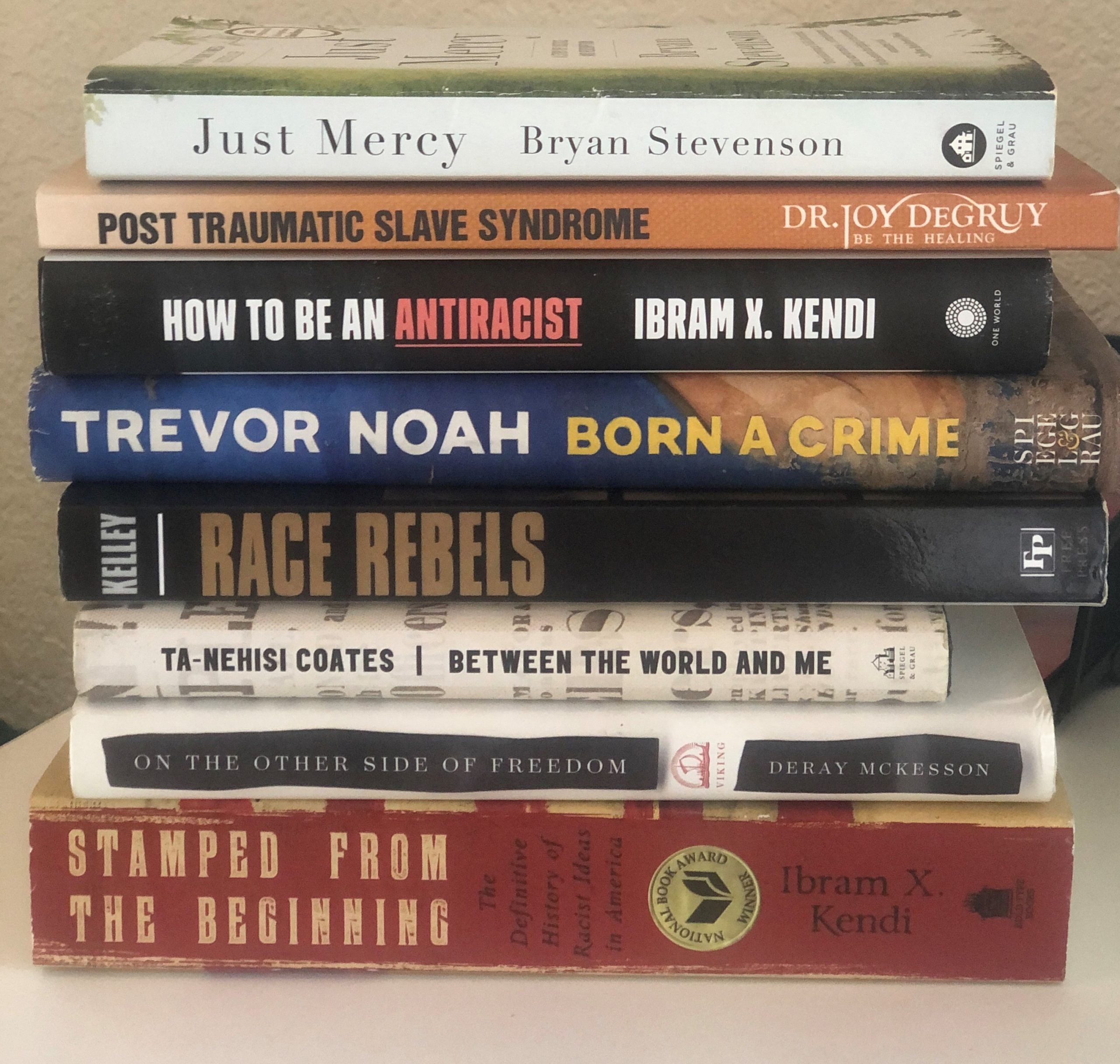A Message From Aselefech Evans, Our Equity and Program Manager, on the Recent Killings of Black Folx
Recently, I have found myself echoing and repeating the words #BlackLivesMatter more often than I would like to, not because I don’t believe those words, but because I need to remind myself of their truth and validity in a time where events say otherwise. I want to live in a just, equitable society where we don’t have to speak out so emphatically and often about black lives, in a society that values all lives equally. We are not there yet.
The killings of Tony McDade, George Floyd, Breonna Taylor, and Ahmaud Arbery have been in the news lately. There are many others who have died unnecessarily as a result of being black. The loss of far too many black lives to list has left our nation outraged at the moment. I would argue that the impact on black people is not one of shock at the news, but of a long-term grief and exhaustion and indeed a sense of familiarity with the “news” that yet another black person has died essentially for being black. Many of us black people are processing stages of grief and trauma associated with these killings. Our bodies and our minds are responding in flight or fight response because there is a heightened sense of fear and anxiety when we feel like we can’t trust the people who have been put in charge to keep us safe.
According to the research group Mapping Police Violence, more than 1,000 people are killed by police every year in America. Black people represent a disproportionate number of those killed. Despite being only 13% of the population, black people accounted for 24% of those killed. Those are devastating and heart wrenching numbers, and behind that data are black bodies—mothers, fathers, children, teens, friends, neighbors.
COVID-19 has further exacerbated this devastation. The Center for Disease Control tells us that, in New York City, death rates for black people due to COVID were 92 deaths per 100,000 people, compared to 45 per 100,000 for white people. Dr. Jeff Duchin, a health officer for Seattle and King County, said in The Seattle Times, “It’s been an ongoing national tragedy and shame that we have communities of color throughout our county suffering disproportionate adverse health impacts from a wide variety of health conditions.” We have seen that reality here in King County, especially among low-income and other vulnerable populations. COVID-19 has also brought to light the glaring disparities that historically have harmed black folx, including the systemic, entrenched racism in health care, education, banking, transportation, employment, and more. Two quick examples: According to The New York Times, for every $100 white families earn in income, black families earn $57. Black people with college degrees are twice as likely to be unemployed as all other graduates (The Atlantic).
In housing, black people looking are shown 18% fewer homes and 4% fewer rental units than white people (Demos). We know also that residential segregation, per the CDC, is linked with many adverse health outcomes and conditions exacerbated by COVID-19. Many black communities live in densely populated areas due to institutional racism; they often have a harder time accessing health services, practicing social distancing, and purchasing food and supplies for long times at home.
HDC is working to decrease these disparities by addressing institutional racism through our Race, Equity and Inclusion Initiatives. We ask our members to be in solidarity with black communities by supporting Black-Owned Businesses and Black Lives Matter Seattle-King County.
Here are a few additional ways to engage in our work:
- Black Staff can attend HDC’s Black Caucus: Community Building and Healing, a convening facilitated by me on Monday, June 8
- Members can apply for our Housing Development Internship Program, designed to recruit, train, and retain racially and socio-economically diverse students so they are prepared to enter leadership positions in the housing industry.
- Join our Recruiting Diversity Task Force. HDC is looking for Chair and Co-Chair.
- Check out our COVID-19 Advocacy Efforts
Recommended Readings by Black Authors:
- Race For Profit: How Banks and the Real Estate Industry Undermined Black Home Ownership by Keeanga-Yamahtta Taylor
- Post Traumatic Slave Syndrome: America’s Legacy of Enduring Injury and Healing by Dr. Joy DeGruy
- How To Be An Antiracist by Ibram X. Kendi
- Stamped From the Beginning: The Definitive History of Racist Ideas in America by Ibram X. Kendi
- Emergent Strategies: Shaping Change, Changing Worlds by Adrienne Maree Brown
- On the Other Side of Freedom: The Case for Hope by DeRay Mckesson
- Just Mercy: A Story of Justice and Redemption by Bryan Stevenson
- So You Want to Talk About Race by Ijeoma Oluo
- The New Jim Crow: Mass Incarceration in the Age of Colorblindness by Michelle Alexander
- Race Rebels: Culture, Politics, and the Black Working Class by Robin D. Kelly
- Born a Crime by Trevor Noah
For non-black folx who are wondering how this time might be for black co-workers, here is an insight from Maintaining Professionalism in the Age of Black Death is…A Lot:
Your black employees are exhausted.
Your black employees are scared.
Your black employees are crying in between meetings.
Your black employees have mentally checked out.
Your black employees are putting on a performance.
Forgive us if our work isn’t up to par, we just saw a lynching. Pardon us if we’re quiet in the Zoom meetings, we’re wondering if we’ll be the next hashtag.
For my black brothers and sisters, please read Radical Gratitude by Adrienne Maree Brown, because you are a miracle walking, and your ancestors’ wildest dream.
On a personal note, I have participated in several Zoom sessions with other professional black colleagues in the housing and with black friends, and we are united in a sense of grief, exhaustion, fear, and, only occasionally, hope.
I’d ask everyone to show grace to themselves and to others. While I understand there are a range of responses to and views about recent events, I can’t imagine that anyone has missed the fact that the U.S.’s historic, entrenched systemic and institutional racism has finally risen to a high level of awareness across this country. I can assure you that black people have been more than aware of the realities: we live them every day. My most optimistic take is that, as a society, we have an opportunity to bring about change. I’ve suggested some readings above (and there are many more); reading is great for better education, and it can’t be the only effort expended. Black-owned businesses need support. Black-led organizations need white allies who do not center themselves but who listen and learn from black leaders. White people need to learn to recognize that racism is more than overt and ugly slurs; it’s part of implicit bias and institutional oppression that sustains racist policies. Our work must be rooted in anti-racism if we are genuinely going to bring about change. It has taken 400 years to bring us to this point. Our history of slavery, segregation, redlining, discrimination (overt and covert), and inter-generational trauma will take time to eradicate, yet there is still urgency in action. I hope you will join me in this hard and necessary work.
In solidarity,
Aselefech


